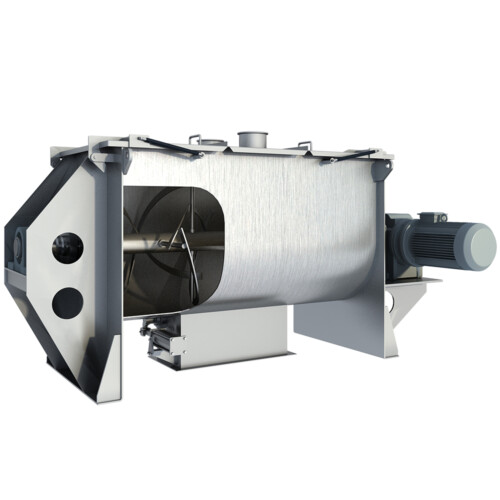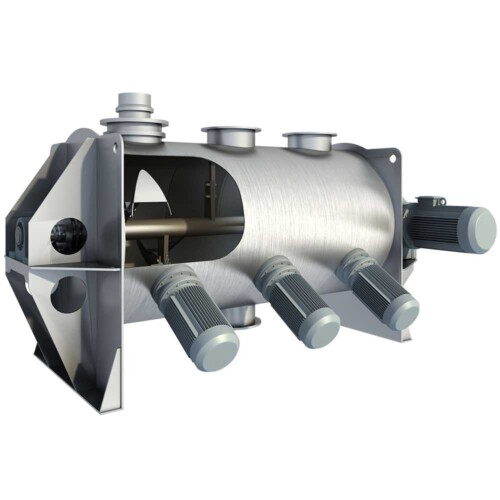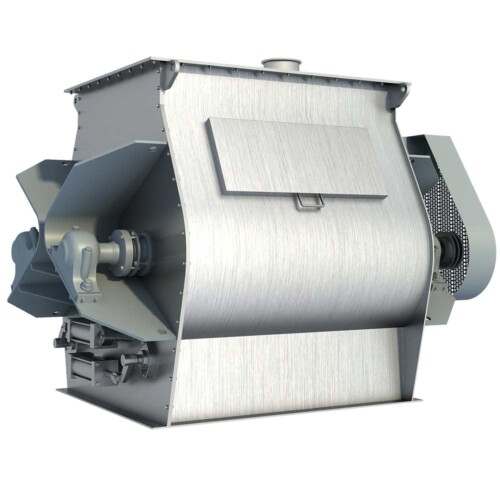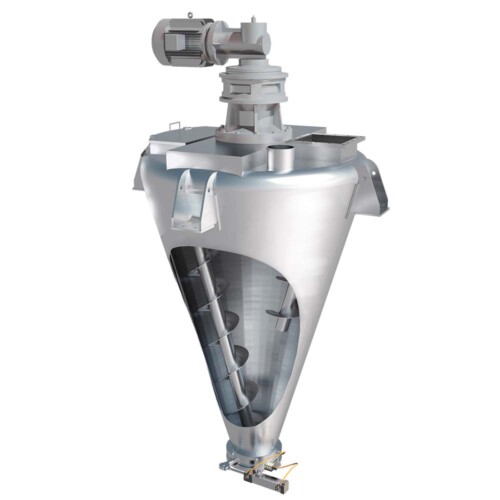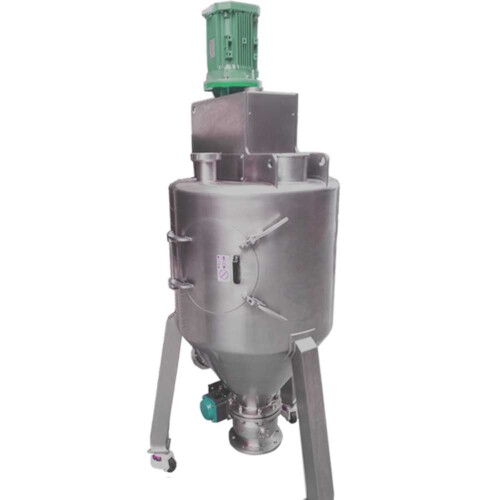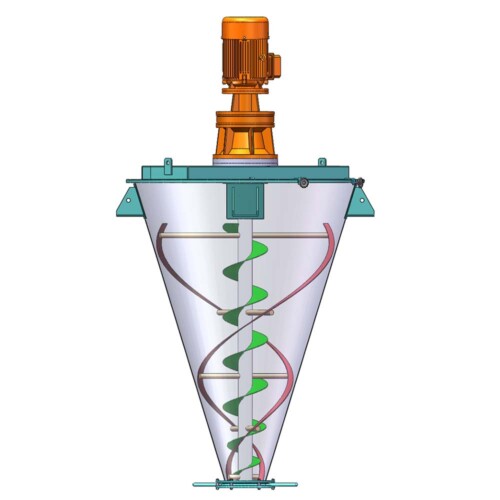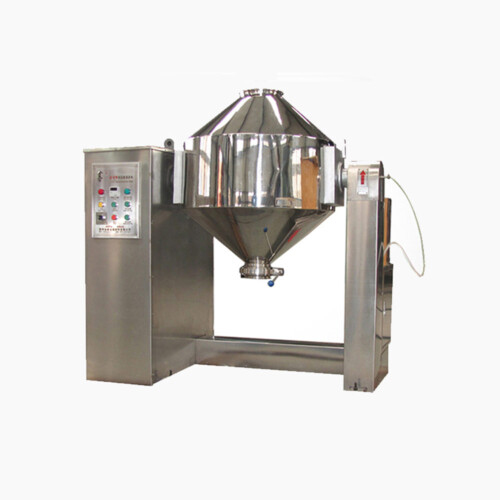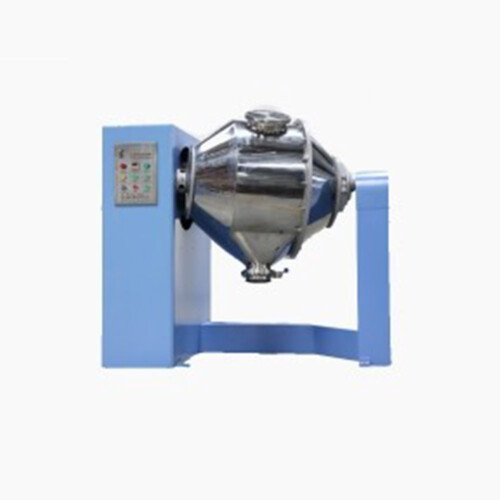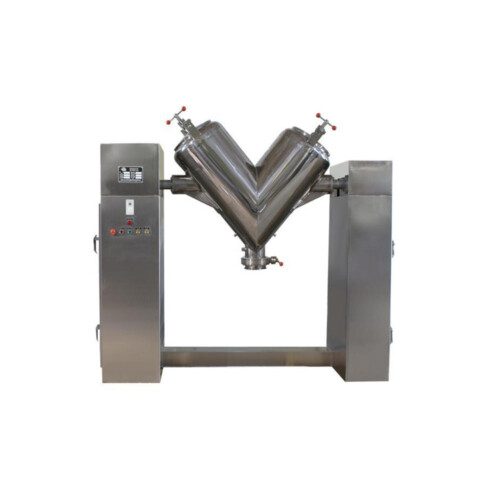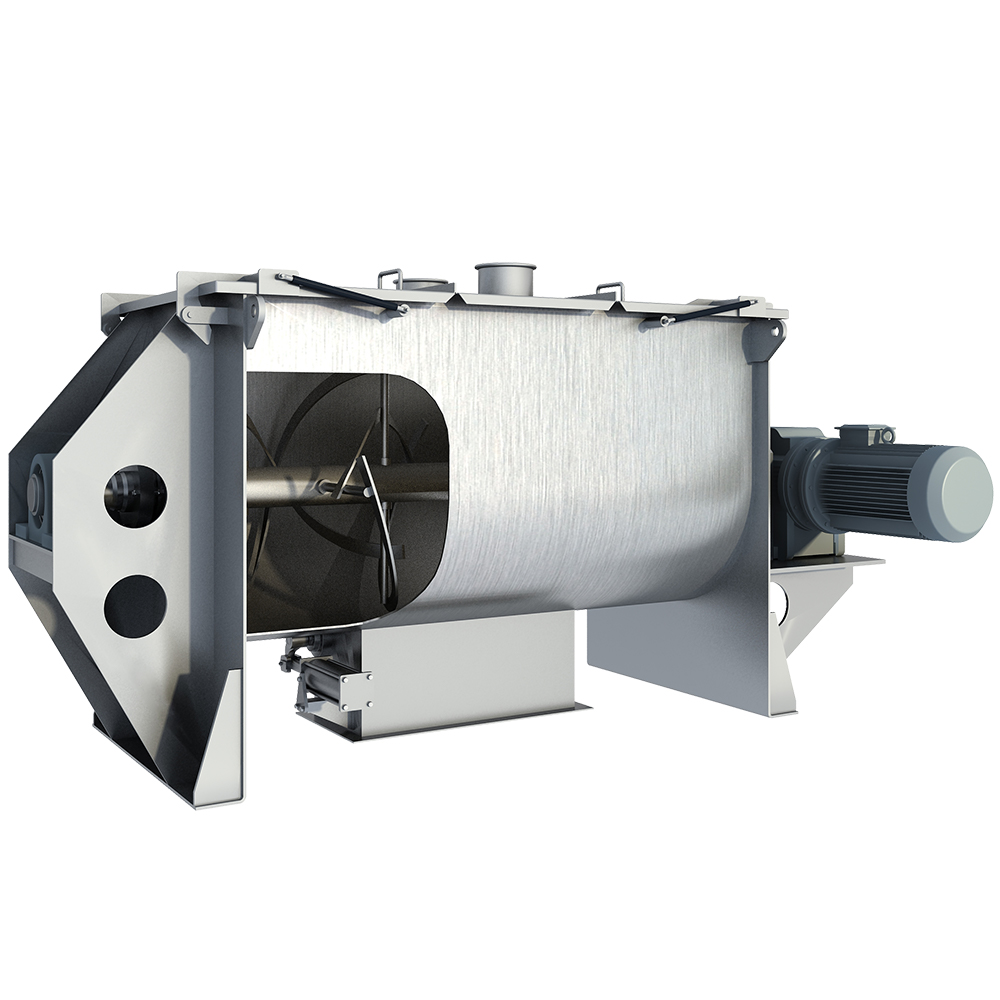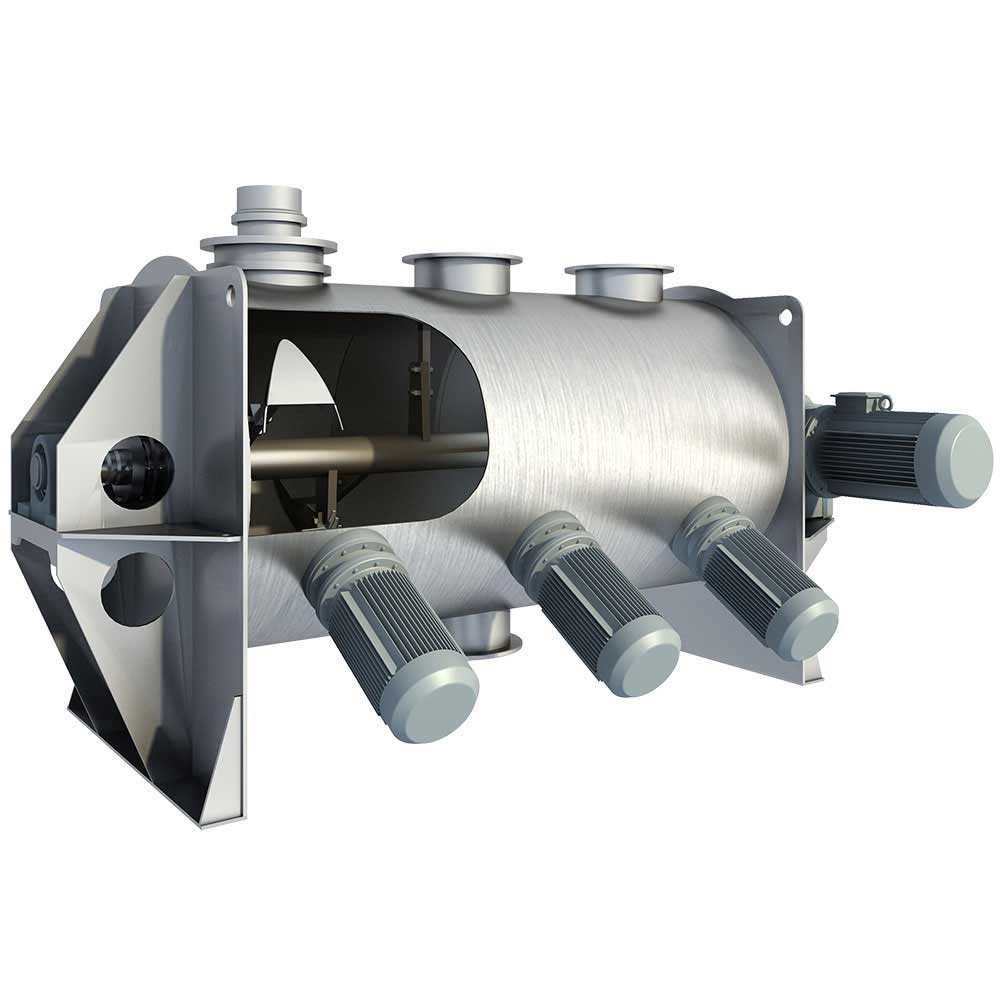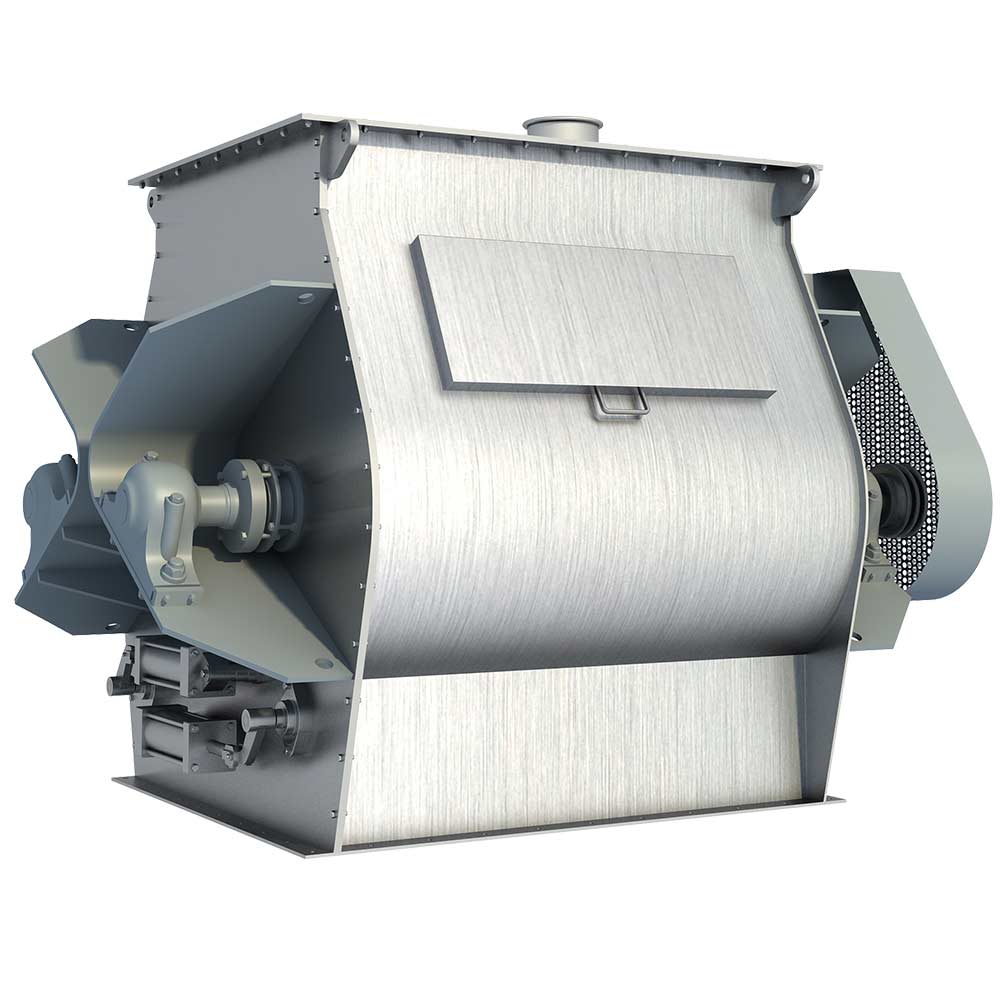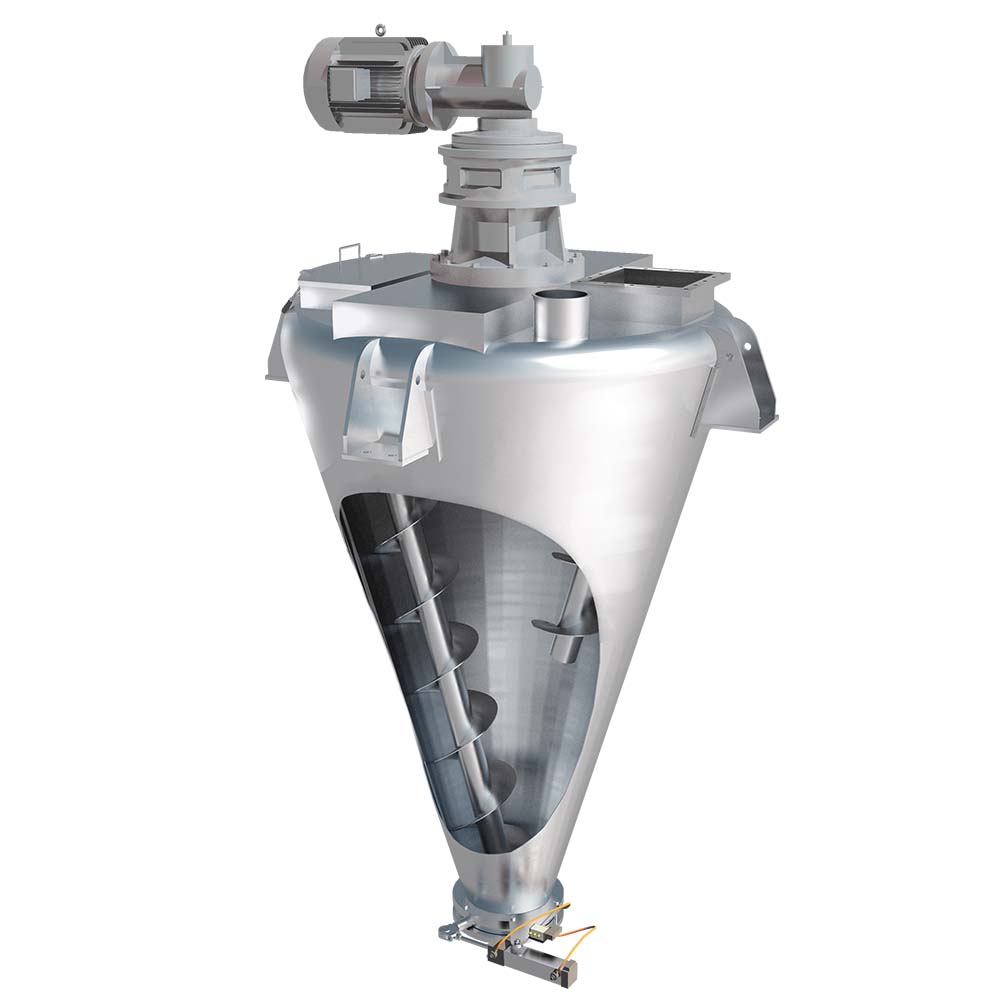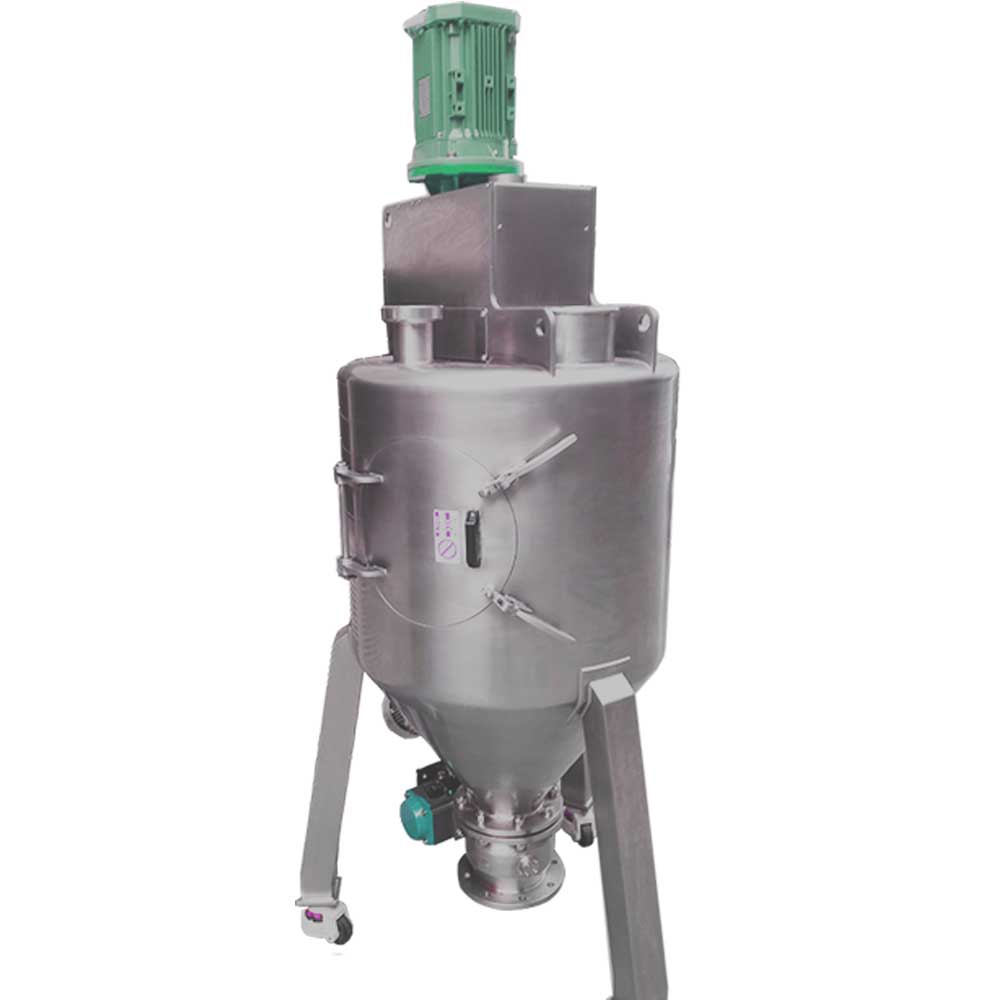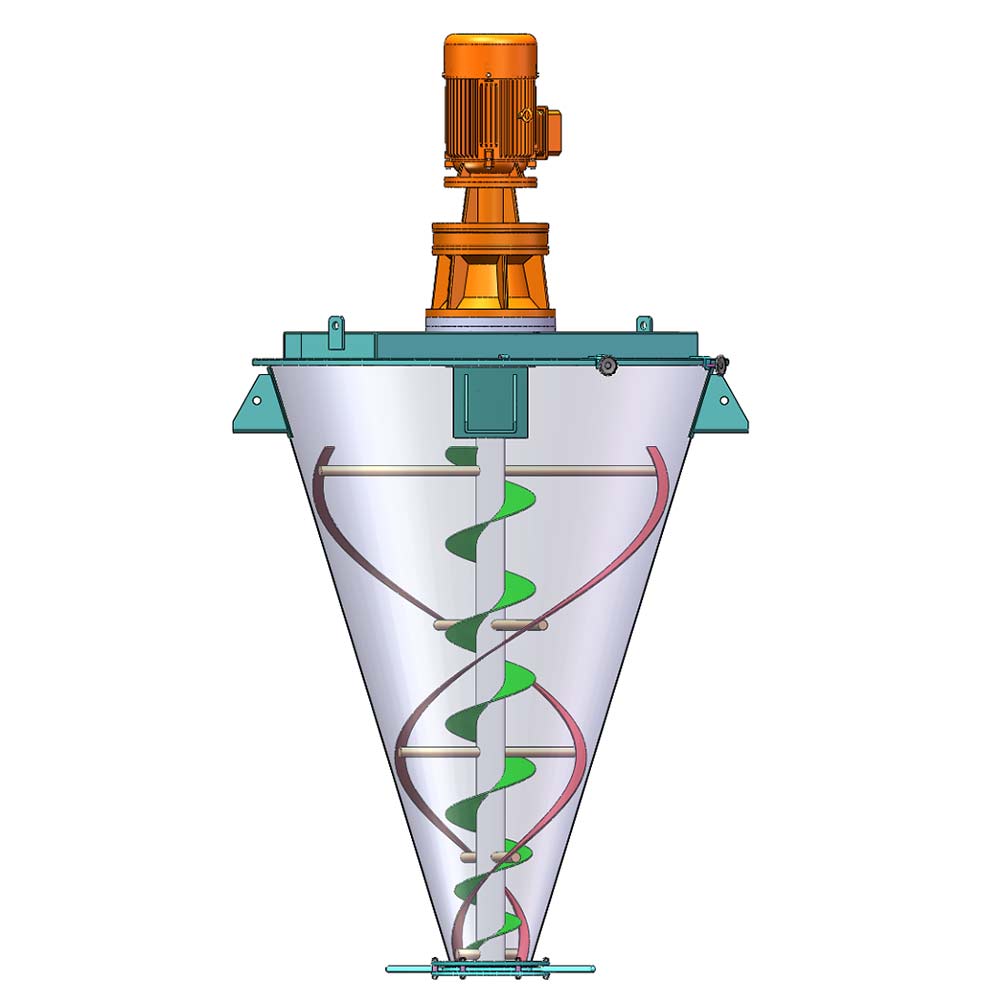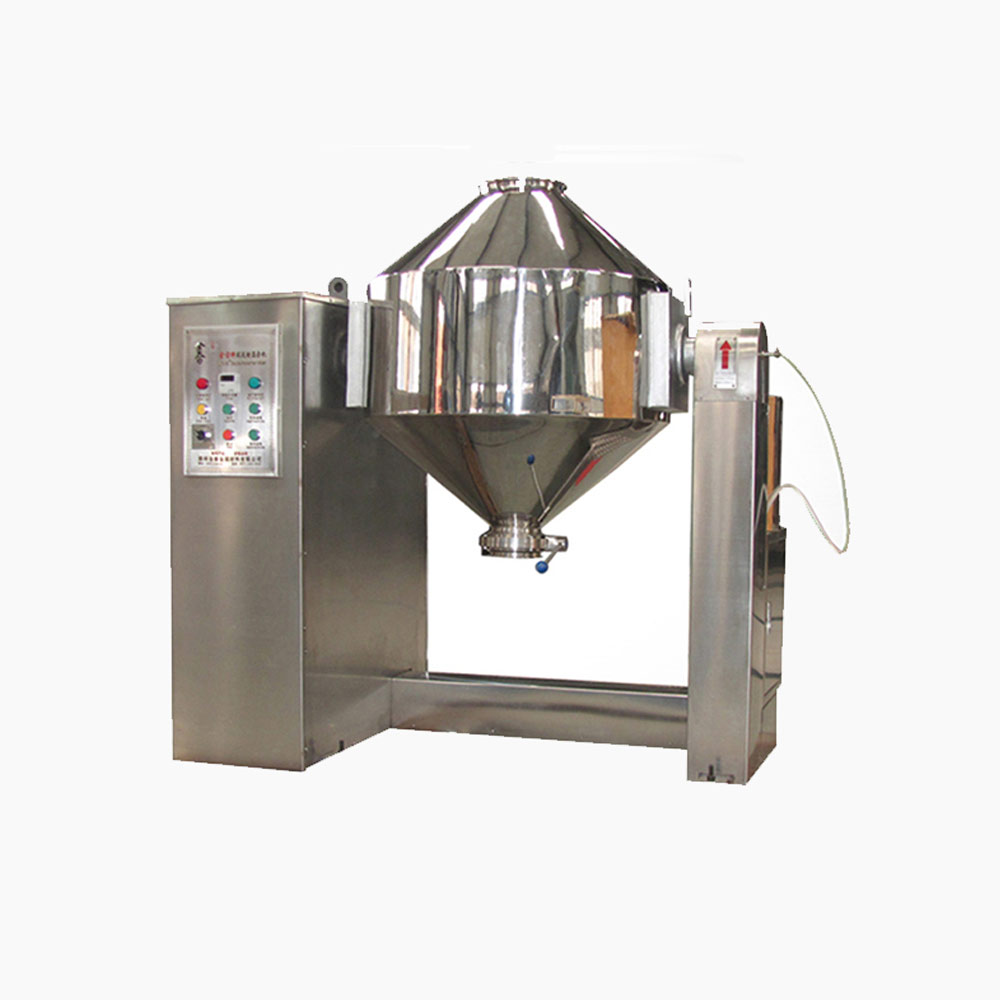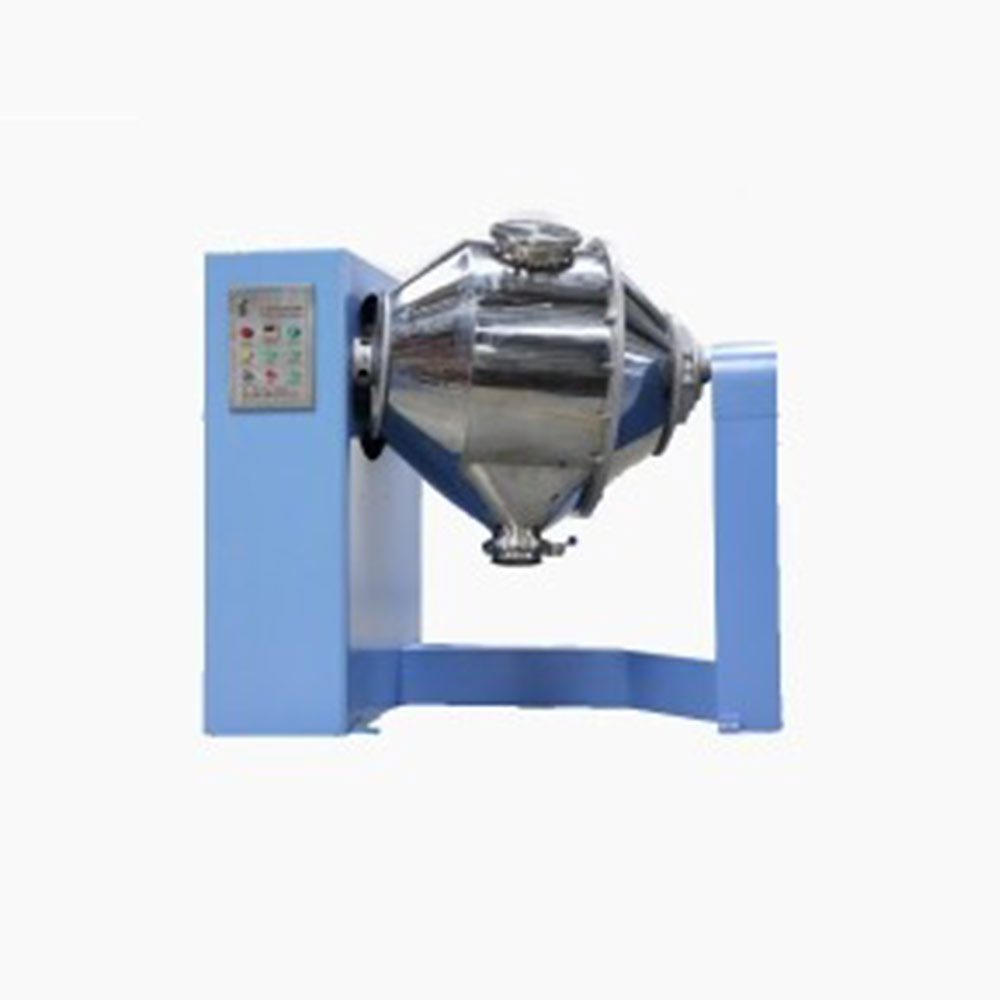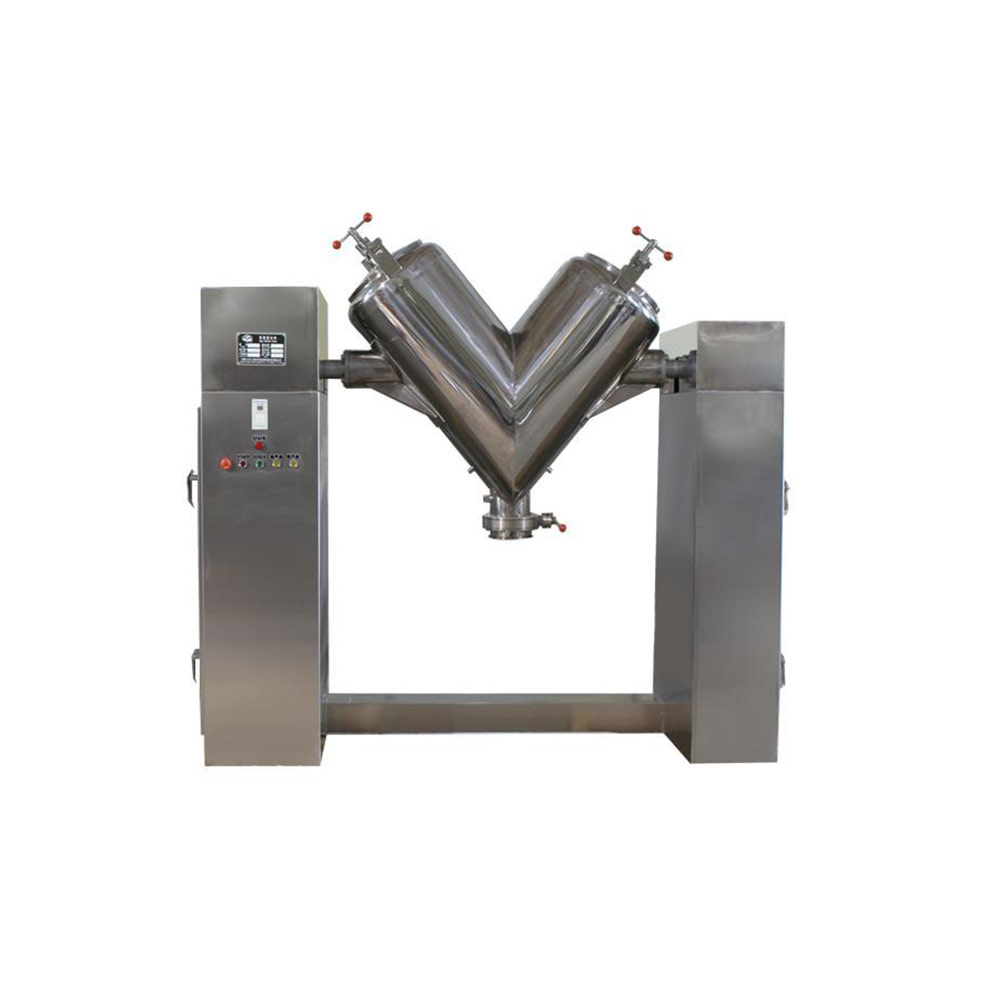Ask An Expert
Frequently Asked Questions
Yes, We can supply simple stand alone panels or automated PLC controlled systems. We normally install and test all controls on our mixers before they are shipped.
Yes, we normally test the mixers before they are shipped and mark out the wire need to connect on the control box.
We manufacture specialty mixing equipment for powder & bulk materials. Included are ribbon blender, plough mixer, conical screw mixer, twin shaft paddle mixer, V blender, double cone blender and other auxiliary equipment such as screw conveyor, quantitive auger filler.
We sell across the world, our cusotmers distribute 5 continents.
Share Us With Your Network
What a ribbon blender manufacturer should know about your mixing speeds
Choosing the right ribbon blender for your application means providing detailed information about your material, process, and equipment requirements to the mixer manufacturer. The manufacturer will keep your information confidential. Following are typical questions the manufacturer asks.
Your materials
• What are the names and bulk densities of the materials to be mixed?
• What are the approximate proportions of the materials to be mixed and the end product’s bulk density?
• What are the material’s characteristics, such as abrasiveness, flammability, and corrosiveness, and are the materials solid, paste, or liquids?
• What’s the volume you expect to mix per batch?
• The voltage, frequency and phase in your workshop
Your process
• What batch size, mixing time, and production throughput per hour do you expect the mixer to provide?
• From which side, and how (or with what equipment), will the materials be loaded into the mixer?
• From which side, and how (or with what equipment), will the end product be discharged?
• Will the loading, mixing and discharge cycles have any special requirements, such pressure or vacuum operation or heating or cooling? Must information about the temperature, material level, or material weight be supplied during any of these operations?
Your equipment requirements
• Will the mixer be started under load or require frequent start-stop cycles (or both)?
• What construction materials does the mixer require, especially in the material-contact areas, support structure, and drive?
• What finish, if any, must the mixer have, and what standards (such as 3-A sanitary) or approvals (such as USDA or FDA) must the finish meet?
• Where and at what height will the discharge be located and what type of discharge should it be? How and from what side will it be operated?
• Will the ribbon assembly need any special modifications, such as high-speed choppers?
• What are the cover requirements, including the cover size and the need for gaskets, special openings or transitions, clamps, grates, and safety microswitches?
• What power supply (volts, cycles, and phase) is available, and where do you want to locate the drive?
• What auxiliary equipment (such as sifters, screw conveyors and surge bins) do you need?
Ask An Expert

